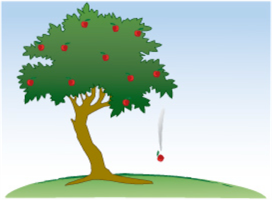In the first of our series of Research Articles for 2015, BT Young Scientist and Technologists of the Year, Ian O’Sullivan and Eimear Murphy, from Colaiste Treasa in Kanturk Co. Cork, tell us about their award-winning research. They examined the influence a parent’s drinking and behaviour towards alcohol can have on their children’s drinking habits.
Alcohol Consumption: Does The Apple Fall Far From The Tree?
 Earlier this year we won the BT Young Scientist Competition with this project on the effect that parents can have on their teenagers through their own drinking and their attitudes towards alcohol. We are in fifth year in Colaiste Treasa, Kanturk, Co. Cork. Here is a description of how we did the project and our results.
Earlier this year we won the BT Young Scientist Competition with this project on the effect that parents can have on their teenagers through their own drinking and their attitudes towards alcohol. We are in fifth year in Colaiste Treasa, Kanturk, Co. Cork. Here is a description of how we did the project and our results.
Alcohol plays an interesting role in Irish society and it’s normally consumed for reasons of enjoyment, relaxation and sociability. However alcohol can have harmful effects on the drinker. It has been noted that Irish people consume far too much alcohol far too regularly in many international studies.
 The idea for our project came about when on our Junior Cert results night we noticed that many of our peers were starting to drink. It’s well known that peer pressure is one of the major causes for teenage drinking however we noticed that young people in the same circle of friends had very different drinking patterns. We realised that there must be another influence on teenage drinking and we decided to investigate if parents had an effect.
The idea for our project came about when on our Junior Cert results night we noticed that many of our peers were starting to drink. It’s well known that peer pressure is one of the major causes for teenage drinking however we noticed that young people in the same circle of friends had very different drinking patterns. We realised that there must be another influence on teenage drinking and we decided to investigate if parents had an effect.
To begin we gave out surveys to students in fifth and sixth year and their parents in the eight schools in our local electorate area. These surveys had questions which asked about drinking patterns, smoking patterns, well-being, BMI and attitudes towards drinking. We got a response rate of 360 pupils and their parents (37%).
 We then analysed these results using statistical analysis and we found:
We then analysed these results using statistical analysis and we found:
- 47% of parents were hazardous drinkers. (Hazardous drinking is a pattern of drinking which is harmful to the drinker and puts them at risk of bad health).
- Over one third (34.2%) of adolescents were hazardous drinkers.
- Of these teenagers who drank too much the majority were under the age of 18.
- Most parents thought that they set a good example for their teenagers.
- However a large amount of parents said that they agreed with allowing their adolescent to drink on special occasions and some parents wouldn’t be concerned if another parent was to supply their adolescent with alcohol.
- Fathers drinking patterns and attitudes was found to have a large effect on teenagers drinking patterns. For example if a teenager was a hazardous drinker over four times more likely to have a father who agreed with teenagers drinking alcohol on special occasions.
- Mothers drinking patterns weren’t found to have an effect on teenage drinking, however mother’s attitudes towards drinking had a significant effect. For example if an adolescent was a hazardous drinker then they were three times more likely to have a mother who wouldn’t be concerned if their teenager drank four pints once a month.
- Mothers could also have a positive effect. If a mother believed that teenagers shouldn’t drink alcohol at all then their adolescent was only half as likely to be a hazardous drinker.
 We also did a test to discover the three most influential factors on teenage drinking. These were:
We also did a test to discover the three most influential factors on teenage drinking. These were:
- Hazardous drinking by the father.
- The father allowing their teenager to drink on special occasions.
- The mother allowing their teenager to drink on special occasions.
The aim of our research was to investigate if there was a relationship between parental attitudes and alcohol consumption and teenage drinking. We found a significant relationship between the two. We found that it is the fathers drinking which affects teenage drinking while the mothers attitudes towards teenage drinking was also found to have a large effect.
Our findings show the need for some important public policy recommendations. For example of the teenagers surveyed who were hazardous drinkers over two thirds were under the age of 18. It’s been shown that this can have a terrible effect on a teenager’s brain development and increases the chance of them becoming alcohol dependent. Therefore there needs to be improved policing of the law regarding teenagers buying alcohol. We would suggest a minimum unit price for alcohol be brought in as teenagers often don’t have a lot of money and will only drink what they can afford.
If you are interested in taking part in the BT Young Scientist and Technology Exhibition 2016, you can Get Involved at http://btyoungscientist.com/.

